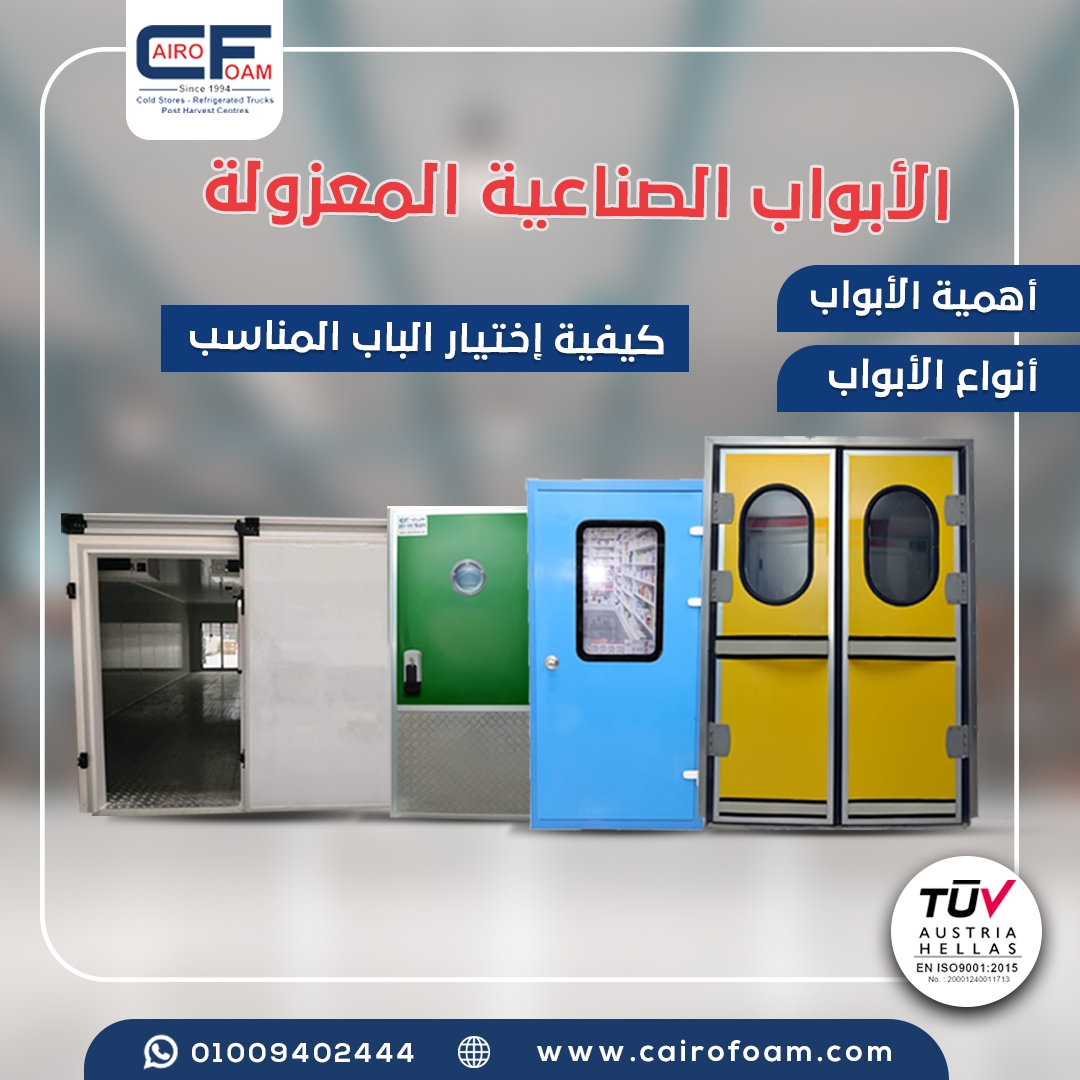Insulated Industrial Doors: Importance, Types, and How to Choose the Right Door

In the world of industry, especially in the food and beverage sectors, pharmaceuticals, cold storage, and warehouses, insulated industrial doors are essential components that help preserve products during storage.
Choosing the right insulated door contributes to improving the efficiency of transportation and storage processes, prevents heat or moisture leakage, and ensures the safety and quality of products.
1. The Importance of Insulated Doors in Protecting Products
Insulated industrial doors play a significant role in maintaining the required temperature within facilities, such as cold rooms or warehouses. They prevent heat or moisture leakage that could damage products. In addition to reducing energy consumption, these doors provide a quieter environment by minimizing noise inside facilities, enhancing the overall work atmosphere.
2. Types of Insulated Industrial Doors and Their Uses
Sliding Doors:
Ideal for narrow spaces due to their horizontal opening and closing design. They offer excellent thermal insulation and are suitable for warehouses and cold rooms that require quick and easy access.
Hinged Doors:
Known for their strength and durability, these doors are ideal for facilities requiring robust thermal insulation. They are widely used in environments that demand complete insulation to reduce moisture and contamination.
Swing Doors:
Primarily used in areas requiring frequent opening and closing, especially on production lines. These doors facilitate easy movement for workers while maintaining insulation efficiency.
Pharmaceutical Doors:
Specially designed for use in the medical sector, these doors ensure a sterile environment and precise cooling for medicines and sensitive medical products. They guarantee maximum protection for stored items.
3. How to Choose the Right Insulated Door for Your Needs
Thermal Insulation Efficiency:
It’s crucial to choose a door made with high-quality materials to maintain the desired temperature and minimize heat leakage.
Motion Control (Manual or Automatic):
Depending on the facility’s needs, you can select either manual doors or automated doors that facilitate worker movement and enhance productivity.
Durability and Ease of Maintenance:
Opting for a door with durable specifications helps reduce maintenance costs. Doors with easy-to-maintain designs minimize downtime and extend their lifespan.
Insulated industrial doors provide effective product protection and enhance operational efficiency for factories and businesses. Choosing the right type helps reduce costs, prevents product spoilage, and ensures the highest standards of quality in storage and supply chain management.